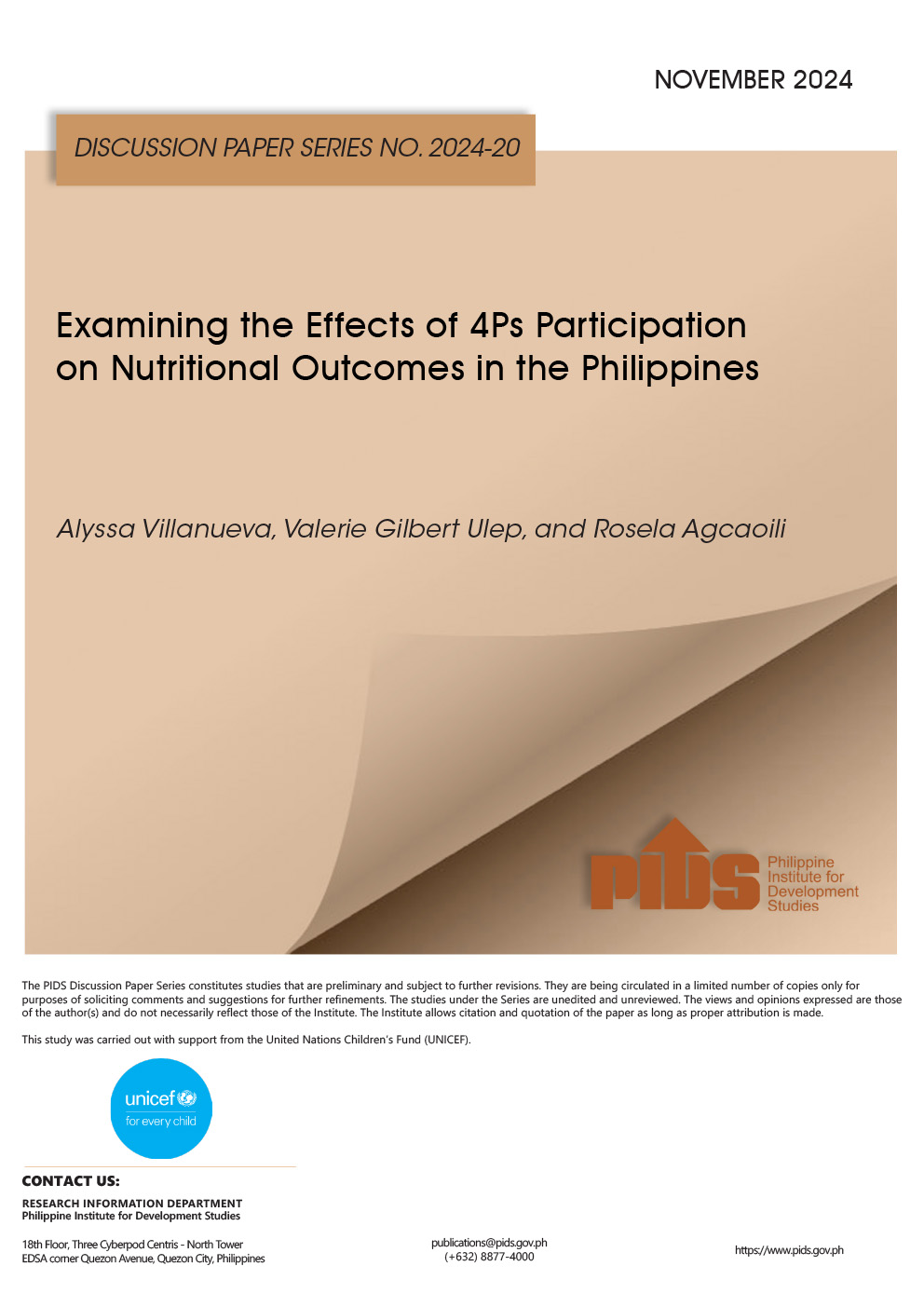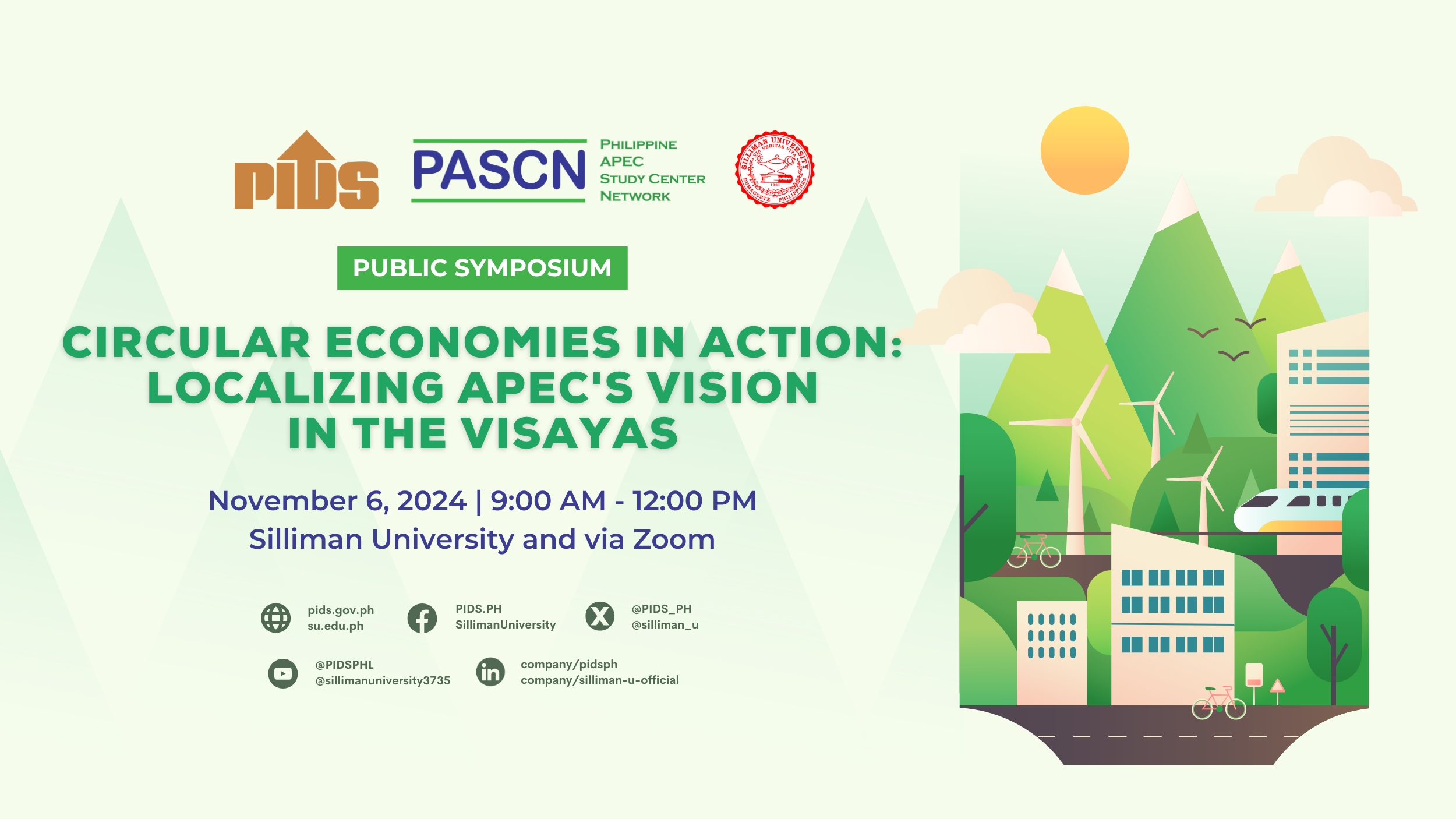The Philippines should push for wider participation of countries belonging to the Asia-Pacific Economic Cooperation or Apec in global value chains to foster trade and investment growth in the region, according to state-run think tank Philippine Institute for Development Studies (PIDS).
In a statement issued Monday, PIDS said the Philippines "can continue to reinforce the importance of global value chains” as it hosts this year’s Apec Summit.
A PIDS policy note titled "Why global value chains and services matter: Implication for Apec 2015,” authored by senior research fellow Ramonette B. Serafica and published last December, noted that "the opportunities to increase and optimize global value chain participation are plenty for Apec” member-economies.
A global value chain is defined by the PIDS paper as the "sequence of activities around the world involved in the conception, production, distribution, usage, and other activities that add value to a product.”
"The trend for Apec nations is to target global value chains and segments that are congruent with the advantages and development objectives of their individual economies. Depending on the global value chain requirements, Apec member-countries can design business facilitation measures and investment policies to encourage growth,” PIDS said.
In the case of the Philippines, it should lead the way in enjoining its Apec peers to "move to higher-value activities in global value chains”–specifically services, in order to "increase the benefits captured” by such, according to PIDS.
"Building on the 2014 initiatives that involve services in goods global value chains, the Philippines during its Apec chairmanship can focus on services value chains. According to experts, global services value chains are not as well understood as goods value chains,” Serafica said in the policy note.
"Given the Philippines’ comparative advantage in ‘other business services’ and in ‘computer and information services,’ advancing regional cooperation in services value chains can further strengthen our export position in these activities,” Serafica added.
To facilitate wider participation in services global value chains among Apec members, the regional grouping should push for improved infrastructure across individual economies, PIDS said.
"Expanding a country’s share of value added in the services global value chain depend largely on the quality of infrastructure and efficient services markets. Apec nations are collaborating to improve the transport sector, business services, telecommunications, and distribution channels,” PIDS noted.
While increased participation in global value chains could present economic advantages as well as generate new specializations for Apec member-economies, PIDS warned that there are also risks to be wary about.
For one, "global value chain benefits are limited by the share of value-added in the chain that a country is able to capture,” the think tank said.
Also, "there are environmental and socio-cultural effects” as "countries that become increasingly embedded in global value chains grow increasingly vulnerable to external shocks,” it added.
According to PIDS, this policy note was commissioned by the Department of Foreign Affairs as part of the country’s hosting of this year’s Apec activities.
"The main objective of the project is to provide the analytical framework that will form part of the basis for the substantive priorities the Philippines will push for as Apec host-economy in 2015,” it said.//
APEC participation in global value chains pushed - Ensuring steady trade and investment growth in the region












